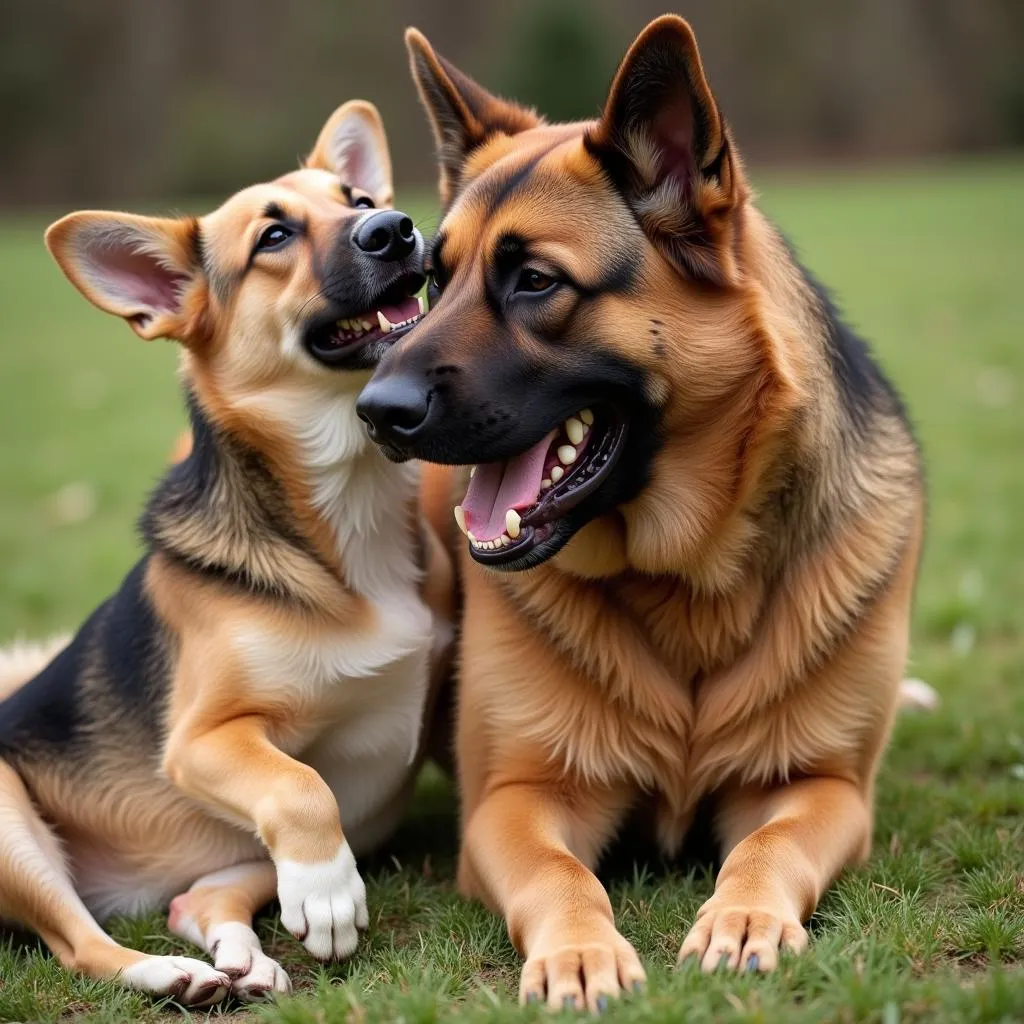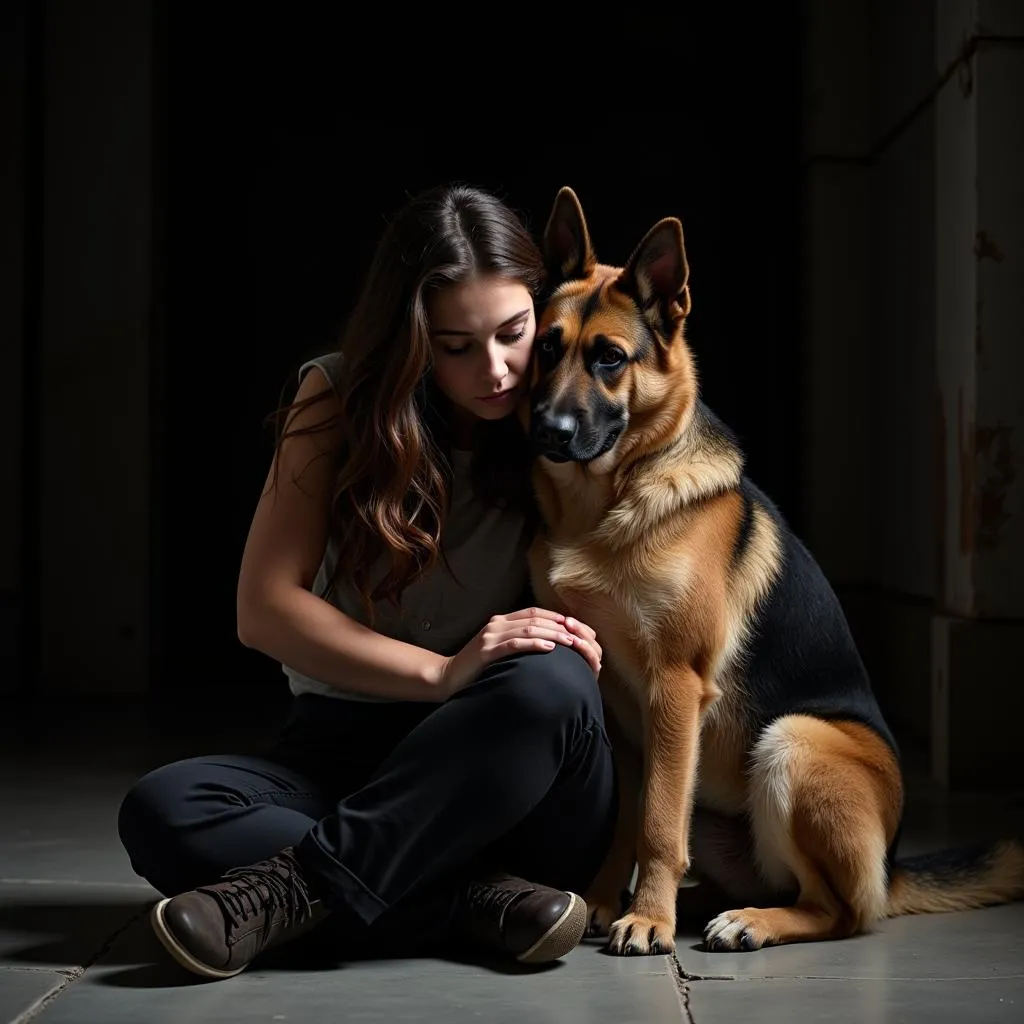The sudden and traumatic loss of a beloved pet is never easy, especially when another pet in your home is responsible. When a German Shepherd, a breed often associated with loyalty and protectiveness, attacks and kills another dog in the household, the emotional toll on the owner is unimaginable. Grief, shock, guilt, and anger are common reactions, often intertwined with confusion and a search for answers.
This article aims to provide solace and guidance to owners grappling with the aftermath of such a tragedy. We will delve into the complex reasons behind inter-dog aggression, specifically focusing on German Shepherds, and offer practical steps to cope with the loss and prevent similar incidents in the future.
Unraveling the Reasons: Why Did My German Shepherd Attack?
While the pain of losing a dog in such a way is profound, understanding the potential triggers behind the attack is crucial for both healing and ensuring the safety of remaining pets.
-
Prey Drive: German Shepherds, originally bred for herding, possess a strong prey drive. This instinct, though dormant in many, can be triggered by smaller animals, including other dogs, particularly if they run or display high-pitched barking.
-
Resource Guarding: Some German Shepherds exhibit possessiveness over food, toys, territory, or even their owners. This can escalate to aggression if they perceive another dog as a threat to their resources.
-
Lack of Proper Socialization: Early and consistent socialization is paramount for any dog, especially breeds like German Shepherds. A lack of exposure to other dogs during puppyhood can lead to fear, anxiety, and ultimately, aggression.
-
Underlying Medical Conditions: Pain, discomfort, or changes in sensory perception due to health issues can trigger unexpected aggression in even the most docile dogs.
 German Shepherd showing aggression towards another dog
German Shepherd showing aggression towards another dog
Navigating Grief and Loss: Coping with the Emotional Fallout
The emotional turmoil of losing a pet to an attack by another dog in the household is complex and multifaceted. Allow yourself time to grieve the loss of your companion, acknowledging the range of emotions you might experience:
-
Guilt: It’s natural to feel guilty, questioning if you could have prevented the tragedy. Remember, even with the best intentions, predicting and preventing every instance of dog aggression is impossible.
-
Anger: You might feel anger towards your German Shepherd, the dog you lost, or even yourself. Acknowledge this anger as a natural part of the grieving process and seek healthy outlets to process it.
-
Fear: The experience can lead to fear and anxiety, particularly concerning the remaining dog and their safety. Professional behavioral assessment and guidance can help alleviate these fears.
Moving Forward: Ensuring Safety and Preventing Future Incidents
Once you’ve begun processing the emotional trauma, it’s essential to prioritize safety and take proactive steps to prevent similar tragedies in the future.
-
Professional Behavioral Assessment: A certified veterinarian or a veterinary behaviorist can assess your German Shepherd’s temperament, identify potential triggers, and create a tailored behavior modification plan.
-
Strict Supervision: Never leave your German Shepherd unsupervised with other dogs, especially smaller ones. Implement physical barriers or separate areas if necessary.
-
Positive Reinforcement Training: Focus on positive reinforcement techniques to encourage desired behaviors and redirect any potential aggression.
-
Re-Homing Considerations: In some cases, re-homing the German Shepherd might be the most responsible and compassionate decision, especially if the aggression was severe or if you have other vulnerable pets.
 A dog owner consoles their German Shepherd
A dog owner consoles their German Shepherd
Seeking Support: Navigating this Difficult Journey
Remember, you don’t have to navigate this challenging experience alone. Lean on your support system, whether it’s family, friends, or a therapist specializing in pet loss. Online support groups and forums can also connect you with others who understand the unique grief of losing a pet in this way.
It’s crucial to prioritize your well-being and seek professional help if needed. The pain of losing a pet is never easy, but with time, support, and understanding, healing is possible.